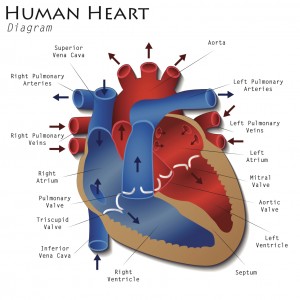 It is always important to take care of your health by getting regular check-ups. And sometimes, this will include going in to check on our heart’s health. After all, the heart is keeping our blood pumping through our system, so if something goes awry, we know why. To do this, you will need an Echocardiogram.
It is always important to take care of your health by getting regular check-ups. And sometimes, this will include going in to check on our heart’s health. After all, the heart is keeping our blood pumping through our system, so if something goes awry, we know why. To do this, you will need an Echocardiogram.
What is an Echocardiogram?
An Echocardiogram (ECHO) is a special non-invasive office ultrasound examination that determines the health of the heart by evaluating both its anatomy and function.
Who should have an Echocardiogram? Individuals of any age who have any of the following:
- Hypertension (high blood pressure)
- Heart murmur or other abnormal heart examination finding
- Mitral valve prolapse (MVP)
- Irregular heart rhythm or palpitations
- Chest pain
- Shortness of breath
- Ankle swelling
- Dizziness or fainting
- History of diet pill use
- History of congenital heart defects
What information does Echocardiography provide? An ECHO examination of the heart will measure the following:
- The four heart chambers that receive circulating blood (atriums) and then pump the blood (ventricles) to the lungs and body. Both the size of the chambers and the thickness of the chamber walls are measured. (Note: High blood pressure can cause wall thickening and subsequent weakening of the heart muscle.)
- Pumping function of the heart muscle, while in motion
- Heart valve structure including prolapse (MVP) or leaking
- Pressure within the heart and lungs in patients with a history of diet pill use
- Detects blood clots, masses or infections of the heart
- Detects inflammation or fluid accumulation around the heart
If you would like more information on Echocardiograms, contact Dr. Gordon C. Gunn MD in Fullerton, CA at 714-912-2211 to schedule an appointment today. Or visit www.gordongunnmd.com for additional information regarding women’s health.
Dr. Gordon Gunn proudly serves Buena Park, La Mirada, Yorba Linda, Diamond Bar, Walnut and all surrounding areas.


 According to recent survey, 425,000 women suffer from stroke each year. The problem is, most women are unaware of the risk factors and
According to recent survey, 425,000 women suffer from stroke each year. The problem is, most women are unaware of the risk factors and  In a day and age where people are becoming more and more health-conscious, it I s nice to know that there is still a day dedicated to what could very well be the perfect meat – bacon. Danya “D” Goodman and Meff “Human Cannonball” Leonard founded Bacon Day in 1997 as the one great day to bond everyone together. Just to bond everyone together…talk about American.
In a day and age where people are becoming more and more health-conscious, it I s nice to know that there is still a day dedicated to what could very well be the perfect meat – bacon. Danya “D” Goodman and Meff “Human Cannonball” Leonard founded Bacon Day in 1997 as the one great day to bond everyone together. Just to bond everyone together…talk about American.
